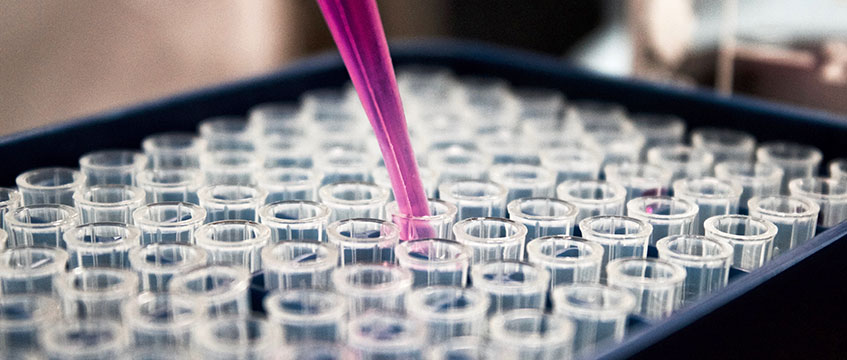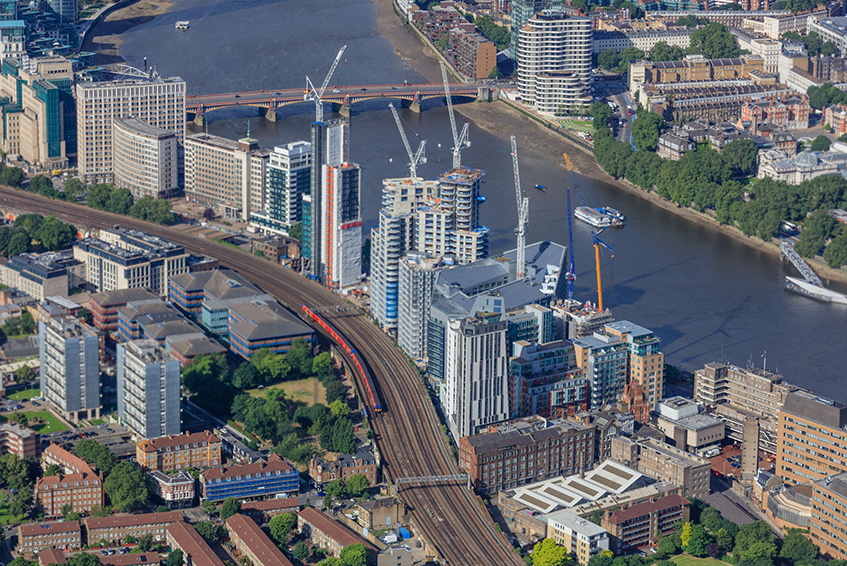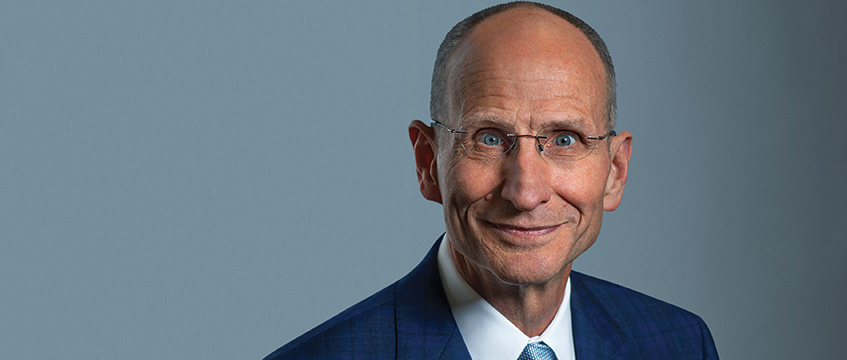Can the regeneration of Vauxhall be inclusive?
No one knows quite where they stand in Vauxhall. Literally.
Despite being one of London’s major transport hubs, the area remains impossible to navigate; a situation not helped by the fact the majority of the area’s occupiers are caged in by the groaning chaos of a multi-lane gyratory system.
And that’s just the infrastructure. There are myriad other factors that give the district its disorientating air.
No one knows quite where they stand in Vauxhall. Literally.
Despite being one of London’s major transport hubs, the area remains impossible to navigate; a situation not helped by the fact the majority of the area’s occupiers are caged in by the groaning chaos of a multi-lane gyratory system.
And that’s just the infrastructure. There are myriad other factors that give the district its disorientating air.
When it comes to its urban fabric, a dichotomy between down-and-out and up-and-coming is increasingly commonplace across many parts of the UK capital.
But it is particularly pronounced in Vauxhall, where run-down back alleys in and around the station’s famous arches are a stone’s throw from some of the capital’s most high-profile new schemes, including the new US embassy, the £9bn Battersea Power Station regeneration and St George’s Vauxhall Tower.
It is this influx of new schemes, new money and new residents that have raised questions over the future of Vauxhall’s reputation as one of London’s best-known gay quarters.
As things stand, the area has largely kept hold of its LGBT status but that is not to say there have not been closures. The “gaybourhood” has lost many spaces in the past few years: Barcode, Paris Gym, Area and The Hoist, to name a few.
But as part of the wider picture – it is estimated that 151 gay bars and clubs shut in London between 2000 and 2016 – “VoHo” has actually fared comparably well.
“The fact the area caters to a drag-meets-fetish slice of the queer world that is not designed to please tourists or straight people has, perhaps, been its lifeline,” says real estate journalist David Thame.
But in a world where diversity is synonymous with inclusivity, are separated LGBT venues still the way forward? Or is there an argument for a more collective, all-encompassing approach to curating an occupier mix in an area like Vauxhall?
As owner of the rail viaduct crossing through Vauxhall Nine Elms Battersea, Network Rail is responsible for a huge cross-section of tenants and has spent the past five years working with developers to make sure the area’s arches reflect the changes in the area without losing its LGBT heritage.
So what does the future look like for the new occupiers poised to move in and the LGBT stalwarts desperate to hold their own in one of the capital’s last bastions of gay culture?
Ready to pounce
Hideous gyratory notwithstanding, it is clear to see why developers and occupiers alike are eyeing Vauxhall like hawks.
The completion of Battersea Power Station – including Apple’s new 500,000 sq ft UK HQ – will inevitably result in a value boost.
The big hitters are already making their plays. Last month Greystar snapped up two plots at the former Royal Mail site for £101m, hot on the heels of Chinese developer R&F Properties’ acquisition of CLS’s Vauxhall Square for £157.8m. And it was announced in May that The Office Group has been granted planning permission to develop a 92,000 sq ft flagship building at Tintangel House on Albert Embankment.
[caption id="attachment_883915" align="alignleft" width="300"] Royal Vauxhall Tavern[/caption]
Many of the area’s LGBT venues are clustered in and around the station and its arches – the heart of Vauxhall’s retail, entertainment and F&B scene. And this is where Network Rail is looking to carefully procure the right mix of new occupiers.
“The most visible stretch of our linear estate is Albert Embankment, facing the MI6 building and the Vauxhall Pleasure Gardens to the east,” says Alan Muir, the group’s director of commercial real estate.
“We are proud of the place the Albert Embankment arches has in the LGBTQ+ community. While we recognise the area is changing as a whole, we do not believe this has to be at the cost of the heritage of the area.”
He says Network Rail has already redeveloped six of the arches on the embankment, with the first wave of tenants moving in the late summer.
These include a new bar from the Antic Collective, the team behind the likes of Brixton’s Dogstar and Effra Social and a new branch of the Bethnal Green-based taproom brewery Mother Kelly’s.
Muir adds the new occupiers will “only serve to enhance the area’s existing identity” as an LGBT quarter. But do the LGBT tenants – incumbent and incoming – agree?
Diversity is key
A former Victorian music hall turned gay entertainment venue specialising in drag acts, The Royal Vauxhall Tavern has long been considered the lynchpin of the area’s gay community.
The venue’s chief executive James Lindsay – a former managing director at Westfield – says what the area really needs is a mix of international occupiers to keep up with the growth of the wider Battersea borough.
“We are here to stay open, to keep going and to provide the gay community with a place to come and feel comfortable. But there is no escaping the fact this area is changing,” he says.
“The US embassy and Battersea Power Station will bring 24,000 new homes and, at the moment, I don’t think Vauxhall has the right infrastructure or occupier mix to deal with that.
“The retail offer is something that really needs to be looked at. Network Rail has closed down some of the arches and is now looking to get them relet. For a while not much was happening but I think there is some interest now. I hope that things have been rekindled.”
It is looking promising. A flurry of recent lets will see an influx of new occupiers by the end of the year, including gay theatre company Above the Stag.
This is a key new tenant for the area to bolster its existing LGBT scene, and one that might go some way to help dispel fears over the future of Vauxhall’s reputation as an entertainment district.
[caption id="attachment_883910" align="alignright" width="300"] Roadworks outside Vauxhall station[/caption]
“We are moving to the new space opposite MI6 on Albert Embankment,” says artistic director Peter Bull. “The support from the local community and London in general has exceeded our expectations,” he says.
“Vauxhall needs to retain its reputation as London’s LGBT capital while being inclusive of everyone. The danger at the moment is that property prices will force not only the LGBT community out, but anyone who is not super rich. If that happens, a new hub will develop elsewhere and the Vauxhall area will be a sterile area devoid of arts and diversity.
“Theatre offers something different where the LGBT+ community can meet and share an experience in a safe environment. We have a diverse customer base comprising not only LGBT+ but a large ‘straight’ LGBT-friendly audience.”
The general consensus seems to be that as long as Vauxhall remains LGBT-friendly, a mix of tenants is the answer to an authentically inclusive future for the area.
Anthony Thomas, founder of Antic – the pub chain that will be opening a 3,500 sq ft outpost in one of the arches – sums it up neatly: “For us it is a case of ‘the more the merrier’ and the main thing is about making sure Vauxhall becomes a place where people go to hang out rather than just pass through.
“All of the LGBT offers in the area are valuable and I have no doubt they will remain. But a lot of them have become mainstream and I am not sure we really need such specific venues anymore.”
What’s next, then?
There is no doubt that the redevelopment of Vauxhall and the wider Battersea borough have kick-started changes that have impacted on the district’s historic gay scene. But they needed to happen, says Royal Vauxhall Tavern’s Lindsay.
“When it was announced that the American embassy was moving to this area, a certain amount of clean-up was required,” he says. “There used to be a lot of drug use in and around the gay venues, which was a heavy burden. The occupiers moving into this area wouldn’t want that on their doorstep. So that needed to happen.”
But, by the same token, it is the regeneration and people these new developments are bringing to the area that is likely to allow Vauxhall’s remaining LGBT venues to weather a much wider storm; one that goes beyond SW8, gay clubs and bars. And that is the challenge facing London’s night-time economy in general.
In the past five years, the number of nightclubs across London’s 33 authorities has dropped by 50%. And of the 430 music venues that traded in the capital between 2007 and 2015, only 245 are still open for business, according to research by the London Assembly.
On top of struggles with rising rents, there is an argument that these venues are simply not as popular as they once were. In an era of clean-living and wellbeing, members of the quieter, healthier millennial generation are more likely to stay in than go out, according to research by the Guardian.
It found 66.8% of millennials agreed that a night in was now preferable to a night on the town. It’s a problem fuelled by the rise of social media and dating apps as a way of meeting people.
“People my age – and I am in my mid-fifties – used to go out to meet people,” says Lindsay. “But apps such as Grindr and Tinder have changed all that.”
He adds that while these apps do affect London’s nightlife in its entirety, there is also a specific gay venue issue emerging.
“When I wanted to meet people, I used to go to a gay bar. Now it is much more common for gay people to go out with their straight friends because they have apps to be more targeted. I would say that, actually, these days it might not even be favourable to be seen in a gay bar anymore.”
This being the case, the argument for an inclusive, LGBT-friendly (but not focused) direction for Vauxhall makes even more sense.
An area likely to withstand the issues afflicting London’s night-time economy in general thanks to a looming, colossal influx of new residents and a new workforce, it needs to offer a mix of tenants that appeal to as many people as possible.
And with the likes of Network Rail working hard to ensure this approach is not to the detriment of the area’s historic culture, the hope is that Vauxhall’s future is in safe hands.
“We want everyone to come to our venues, whatever their sexual persuasion,” says Antic’s Thomas. “That makes sense, doesn’t it? And it is certainly what inclusivity means to us.”
To send feedback, e-mail emily.wright@egi.co.uk or tweet @EmilyW_9 or @estatesgazette











